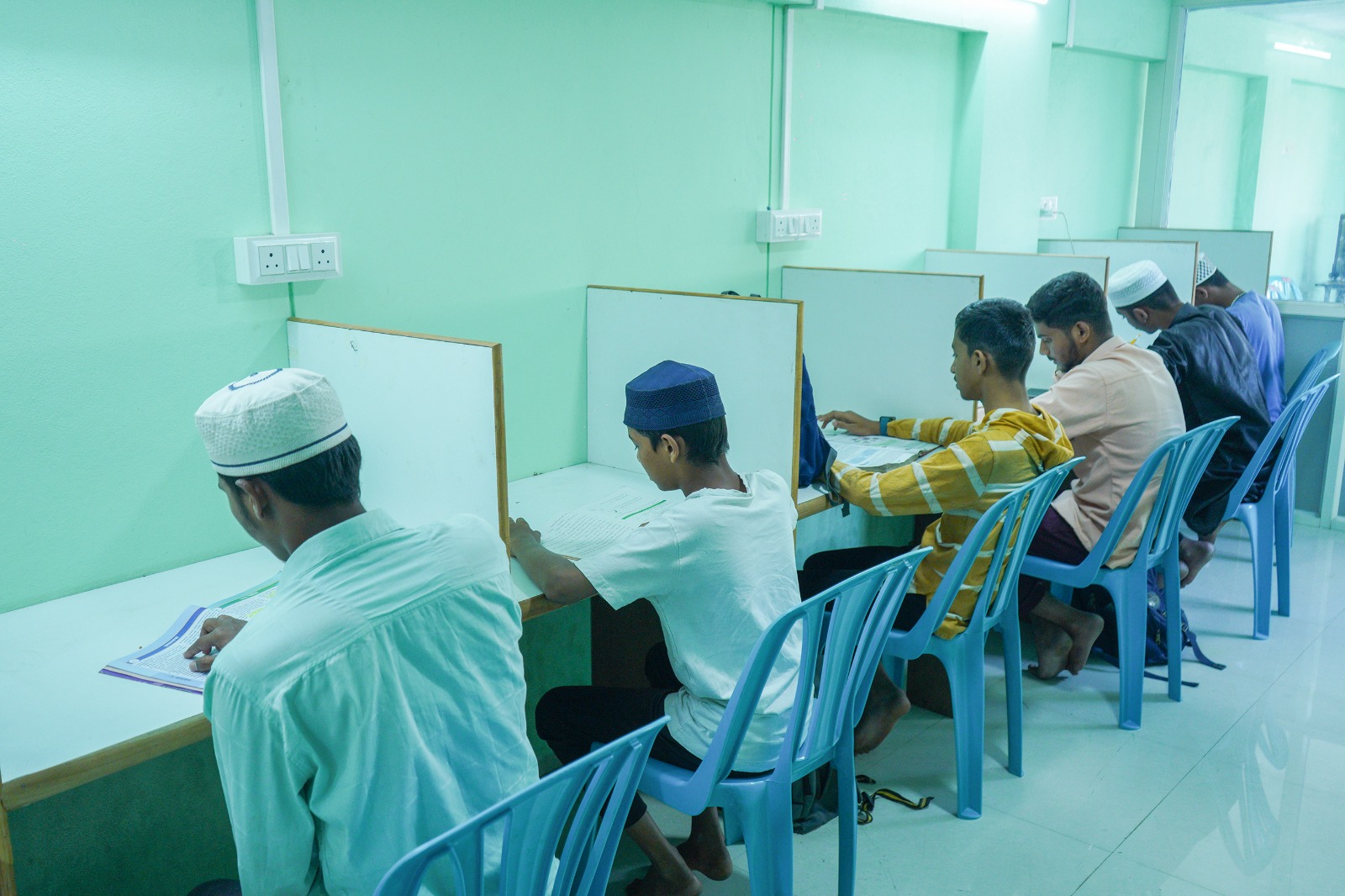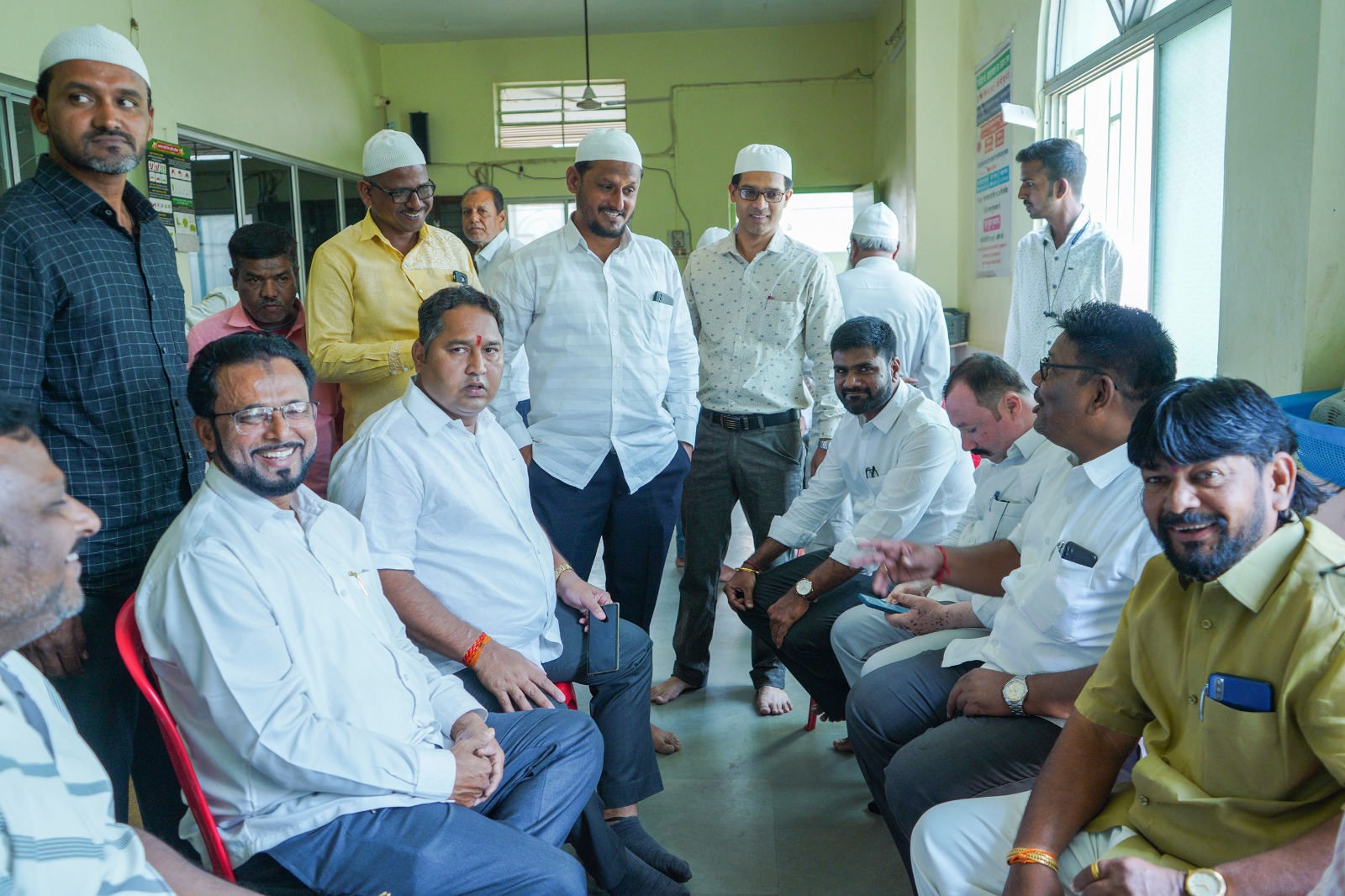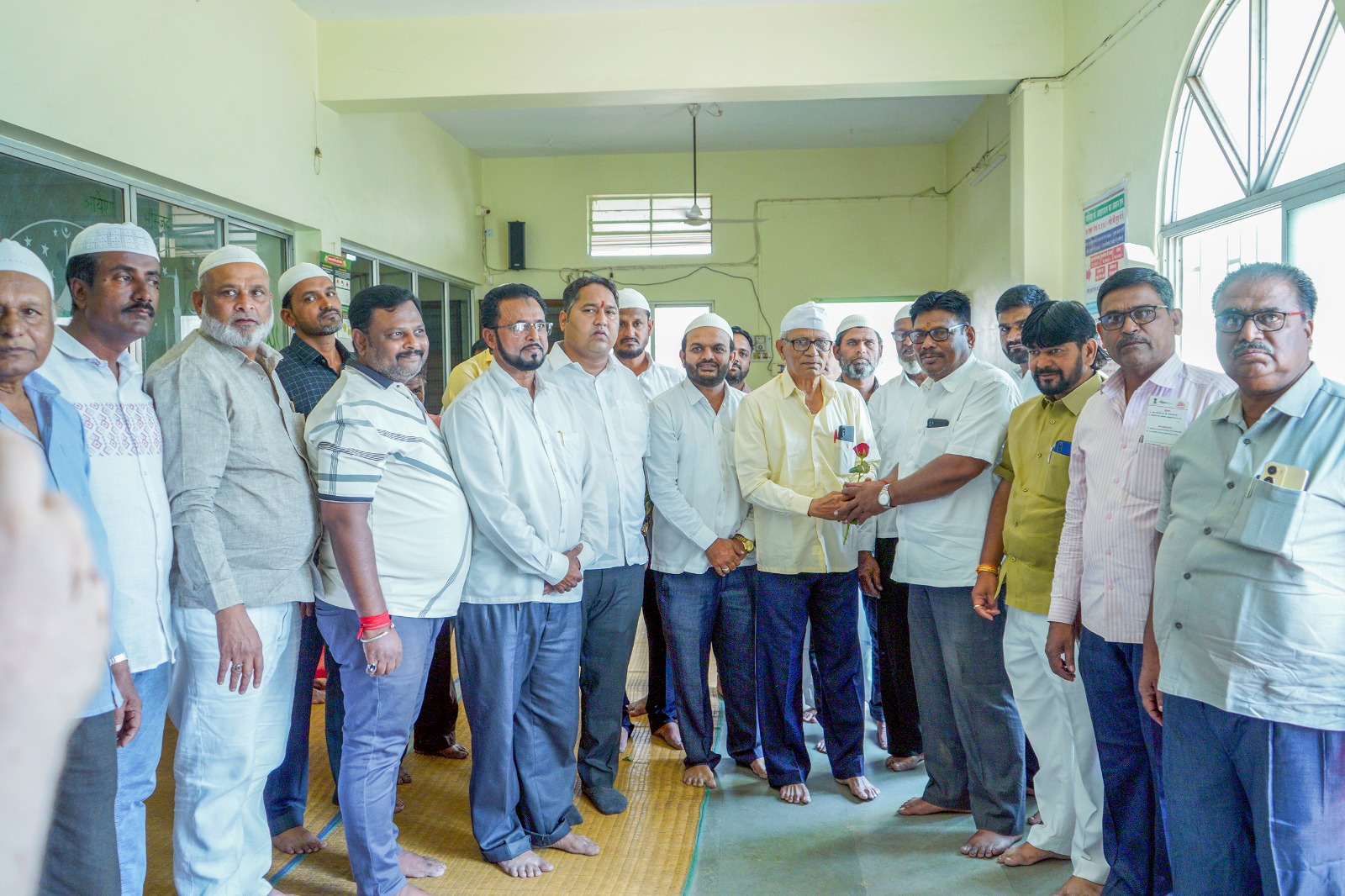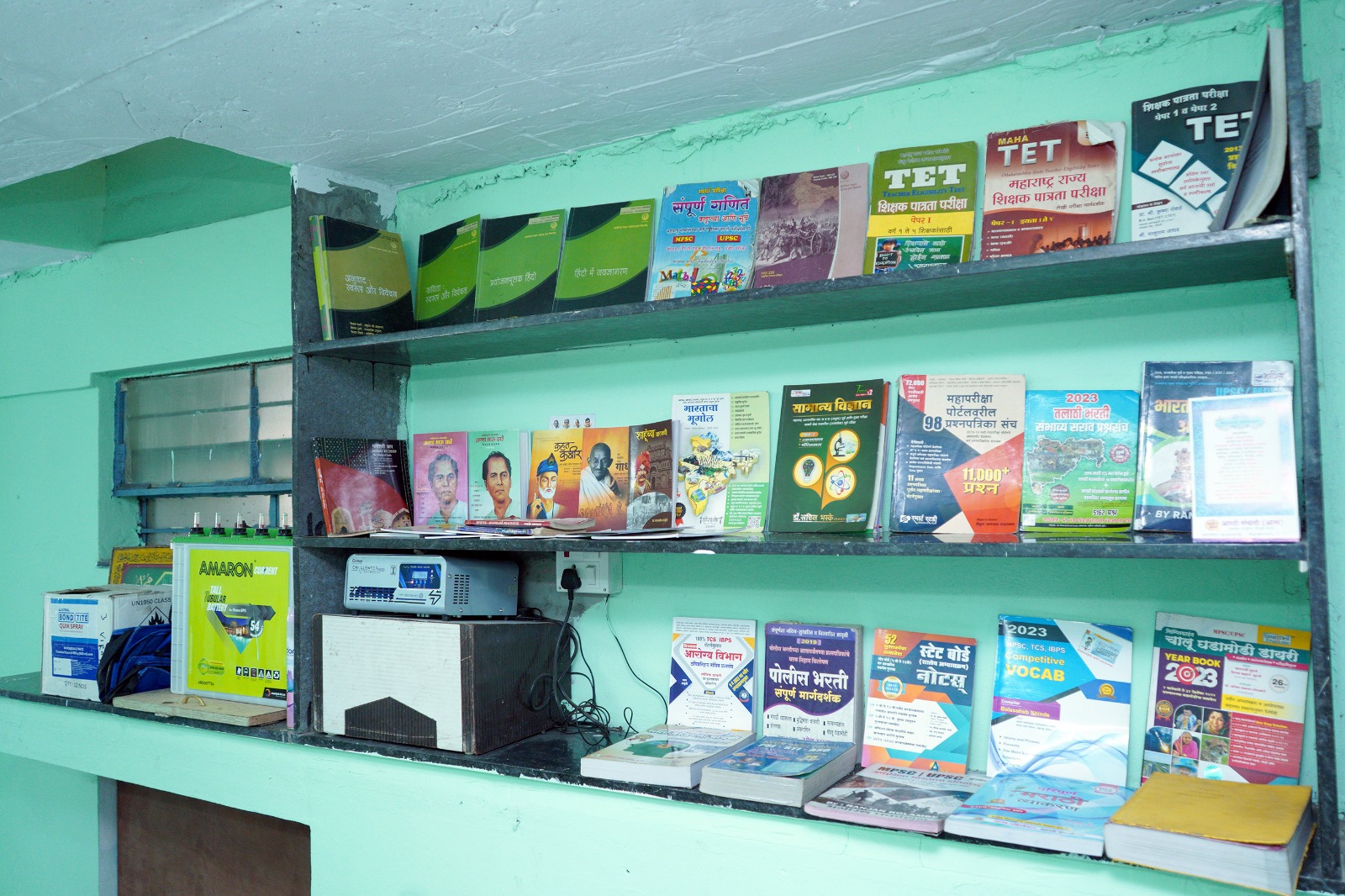How a Mosque in Maharashtra’s Kolhapur is Serving as a Centre for Learning for Students Belonging to Different Faiths

By Sobiya Inamdar, TwoCircles.net
Ichalkarnji (Maharashtra): Naazim Latkar aspires to become a doctor and is preparing for the National Eligibility-cum-Entrance Test (NEET). He lives in a small house and doesn’t have the much-needed separate place to study.
Realising the insufficiency of space and unsuitable conditions at his home that disrupt his study routine, he was provided a room in the premise of a mosque in his locality.
“I am able to study undisturbed for at least 10 hours at a stretch,” said the relieved man, further excitedly talking about the provision of a study room at Ayesha Mosque.
The 16-year-old is preparing for Indian Medical Academy (IMA).
The mosque at Sangli Naka in Kolhapur district’s Ichalkaranji taluka of Maharasthra has set up a study room-cum-library three months ago for students of the vicinity regardless of their religious background.

The mosque managing committee, comprising 11 members, are the brainchild of the initiative — which has provision of a dedicated study room with resources like books, study table, chairs and computers.
Its beneficiaries so far include 35 students who come here regularly to study for 10-12 hours from 7 in the morning till 10 at night.
One of the members told TwoCircles.net people living in congested mohallas often have small houses — which lack space for students aspiring for higher education. “This is a common problem in places that are densely populated. And that is why we came up with the idea to set up a study center to help such students,” he said.

Naazim’s father Nazir Latkar, who drives a light motor vehicle for livelihood, said he does not have much space in his house for his son to study quietly as there are five members in his family.
“Sometimes, his younger siblings disturb him. The study center has given my son a favorable atmosphere to prepare for his future goals,” he said, adding he could not attend school after eighth grade but wants Nazim to become a doctor.
Dr Asif Shaikh, a committee member who supervises the center voluntarily, spoke about the objective behind the ambitious arrangement.
“Namaz (prayer) is offered five times a day, and every prayer does not take more than a few minutes. Therefore, the managing committee members decided to use the space after the prayers as a library-cum-study center for students of the locality irrespective of their religious background,” he said.
“The students can also utilize the largely empty and peaceful space in a productive manner. The initiative will serve as the best investment in the growth and development of our country.”
He said if those who are coming here to study crack competitive examinations they are aspiring for, it will help set an example for other such community spaces to follow suit.
While talking about discipline, he gave a glimpse of the supervision routine. “All the students are well-supervised by the teachers devotedly engaged in curricular activities,” he said.
Dr Shaikh also talked about the diversity of students who come to the mosque for studies. “Currently, we have one MPSC aspirant and two-three students preparing for B. Tech and medical entrance examination. Apart from them, we also have students who are preparing for their 10th and 12th board examinations,” he said.

He expressed his optimism to soon open a study space for female students as well.
Wajid Tasgave, the vice president of the mosque committee, said,” We got this idea when we saw students sitting idle in the mosque after prayers. We thought, what if we provide them the space for their academic activities? And after deliberate discussions, all the committee members agreed and in the month of February, we made the study center operational.”
He said in the Ichalkaranji region, the Muslim population is estimated to be around 2,000 — a majority of whom are economically backward.
“In this fragile state of poverty, the domestic conditions usually turn out to be extremely ill-equipped for students aspiring to achieve ambitious dreams. We hope this initiative acts as a ‘light in the tunnel’ for poor students/learners in need,” he added.
The Ayesha Mosque is involved in several other social works such as organising camps for voter enrolment, etc.
Though the priority is initially tilted towards higher education, the mosque committee members are buoyant about welcoming school going students in the future as well.

They are also looking forward to providing students study materials and creating a technology-oriented atmosphere.
According to Moulana Asif Mujawar, who is imam (prayer leader) at the mosque, during the era of Prophet Mohammad, in his mosque (Masjid-e-Nabvi) in the holy city of Madina, Quranic teachings used to be imparted to people belonging to all walks of life.
“Mosques at that time were a source of learning and shaping the personality of individuals. Using Masjid premises for educational or social purposes is not only acceptable but encouraged by shariyah,” he added.
